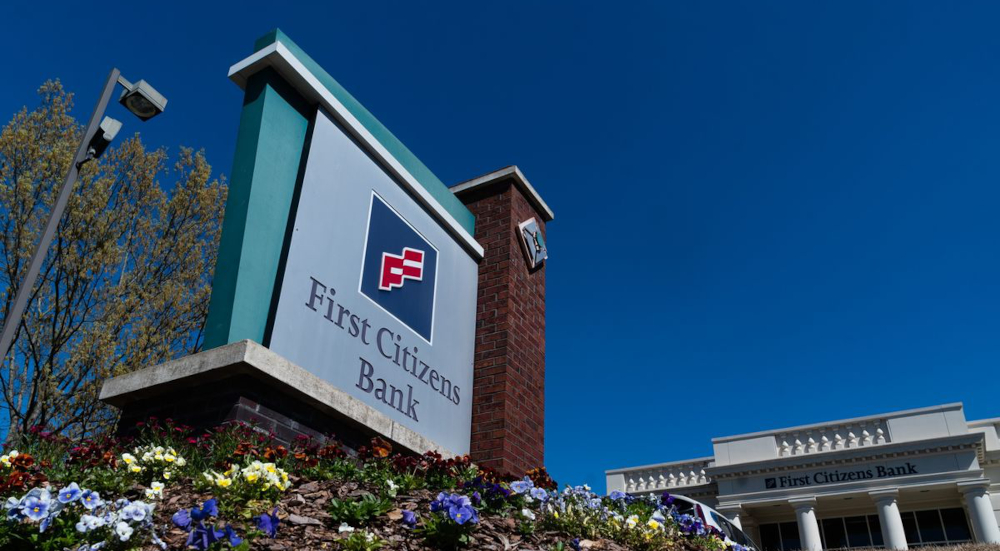The takeover of Silicon Valley Bank (SVB) branches by First Citizens Bank could help hemp companies in a number of states where the North-Carolina-based regional bank previously had no presence.
With its purchase of the failed California bank’s assets last month, First Citizens adds branches in Arizona, Colorado, Illinois, Massachusetts, New York, Oregon, Pennsylvania, Texas, Utah, and Washington. First Citizens said the 17 newly-acquired branches in 15 states are now operating as “Silicon Valley Bank, a division of First Citizens Bank.”
First Citizens already has branches in North Carolina, South Carolina, Virginia, West Virginia, Tennessee, Maryland, Florida, Georgia, and California.
‘Hemp-friendly’
First Citizens did not confirm to HempToday that the acquired branches will offer services to hemp companies, but the bank describes itself as “hemp-friendly,” noting its market specialists “have a deep understanding of the financial challenges (stakeholders) face in the business of hemp.” The bank charges a $150 monthly compliance fee to hemp companies, and requires depositors and other customers to hold hemp licenses and adhere to regulations in the states where they operate, according to its website.
In addition to banking accounts, First Citizens offers credit cards and owner-occupied commercial real estate loans, and finances equipment and machinery needed by hemp operators.
Legal but underserved
Makers of legal hemp products have been eligible to work within the existing banking framework since the 2018 Farm Bill legalized the crop federally. But unlike First Citizens, many banks turn away hemp businesses due to their confusion over the difference between marijuana and hemp.

Banking in Cannabis: The Other U.S. Banking Crisis
Analysis by CannabisLaw.com – READ
“Since industrial hemp is delisted from Schedule 1 of the Controlled Substances Act, it is a legal commercial product and can have regular banking relationships,” said attorney Sanford Stein of Chicago-based CannabisLaw.com. “But many bankers remain reluctant due to a lack of understanding of the business and false equivalencies with THC.”
SAFE Act coming?
The situation will be clarified only when Congress passes laws that embrace both marijuana and hemp, lawmakers and hemp stakeholders have said. Such legislation, embodied in the Secure and Fair Enforcement (SAFE) Banking Act, failed to pass last year.
While legislators said they were prepared to move on reform earlier this year, the SVB collapse proved a distraction, according to Senate Banking Committee Chairman Sen. Sherrod Brown, an Ohio Democrat who supports the SAFE Act. Brown said lawmakers have now returned their attention to the banking law, and that the Biden administration wants to see reforms enacted this year.
“This is the most crucial cannabis industry necessity for 2023,” Stein said.
Hundreds of licensed and regulated cannabis businesses do not have access to the banking industry, according to Stein. That means they can’t accept credit cards, make deposits, obtain loans, or write checks to pay their employees or tax bills.
“No industry can operate that way. Safe access to funds and availability of expansion and support capital are essential to any business,” he said.
The deal
First Citizens agreed to buy all of SVB’s deposits and loans, as well as a large portion of the failed bank’s assets, after the disclosure that SVB held a high number of Treasury and other government bonds. The bonds have become less valuable as interest rates have risen, and eventually led to a fatal run on the bank among its technology and venture capital clientele.
Observers have said the takeover of SVB is a significant step in the efforts to shore up the banking sector after the Northern California bank collapsed last month, causing turmoil in the global financial world.
About $90 billion in securities and other SVB assets remain under the control of the FDIC, which has said the bank’s failure cost the government’s Deposit Insurance Fund about $20 billion.

